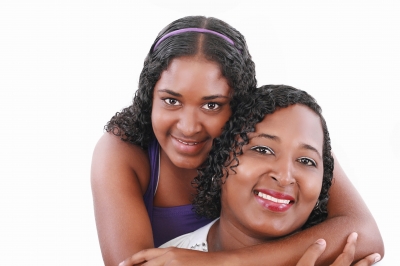
Help your teen combat depression and anxiety with physical touch.
Image courtesy of David Castillo Dominici / FreeDigitalPhotos.net
It has been said that you need affectionate physical contact approximately ten times per day for your well-being. Does your teenager get that? If you’ve noticed your teen feeling anxious or depressed lately, you might ask yourself this question. Some teens hug their parents, siblings, and friends multiple times per day. They seek you out on the couch and sit right next to you. They are naturally very affectionate. However, these are not usually the kids who feel depressed or anxious.
It’s ironic that for the depressed or anxiety-ridden teenager, the thing that can help them to feel better is something they might hesitate to seek. Mom and Dad, this is where you come in. You can be conscious about giving your teenager affection. This doesn’t mean you necessarily have to wrap them in a big hug. It can be a pat on the back or a quick rub of the head. Just making the extra effort to have contact with your children can really help them thrive.
You now might be thinking one of two things. One possibility is that you are thinking it is inappropriate to touch your teenager. While you are probably not going to have the same sort of physical affection with your teen that you had when they were two, it is acceptable to show physical affection towards your children, irregardless of their age. Yes, now you should knock on their bedroom door before you enter and probably won’t be wandering into the bathroom while they are taking a shower. However, while they’re doing their homework it can be of tremendous benefit to their attitude and mood if you give them a quick squeeze of the shoulders. It also softens whatever you were about to say to them. For example, if you were going to say, “I’m glad to see you working hard on homework,” think about how that could be perceived sarcastically. Now think about how it’s likely to be perceived if it includes a quick affectionate touch- probably as a positive comment.
The second thing you might be thinking is, “My teenager won’t let me touch him.” You’re one of those parents who would love to hug your son or daughter, but they’ll have none of it. Just start where you can comfortably start. Maybe for a few weeks you’ll ask if you can help carry something they are holding. They will probably have incidental contact with you when they hand it to you. Perhaps you will offer to fix an out-of-place strand of hair, or help your teen into his jacket. You also might consider simply changing the rules around the house to require a hug before leaving and before going to bed. While it will be met with disgust and complaint, know that it is benefiting your teenager tremendously and that they secretly like it.
Physical affection toward your adolescent helps you too. Remember when your child was really young and sometimes screamed or threw tantrums? For a parent those moments are very frustrating. Picking your child up and holding her helped you reconnect the bond that was slightly damaged with the tantrum. Things are no different with your teen. They still throw tantrums (although they look a little different). You still need to work at reconnecting the bond. For a parent, physical affection is one of the best ways to do so.
Have fun being more affectionate to your teenager this week! It’s good for you; it’s good for them; it helps everyone’s mood.
Helping teens grow and families improve connection,
Lauren Goodman, MS, MFT



